8 Alberta Myths — Debunked
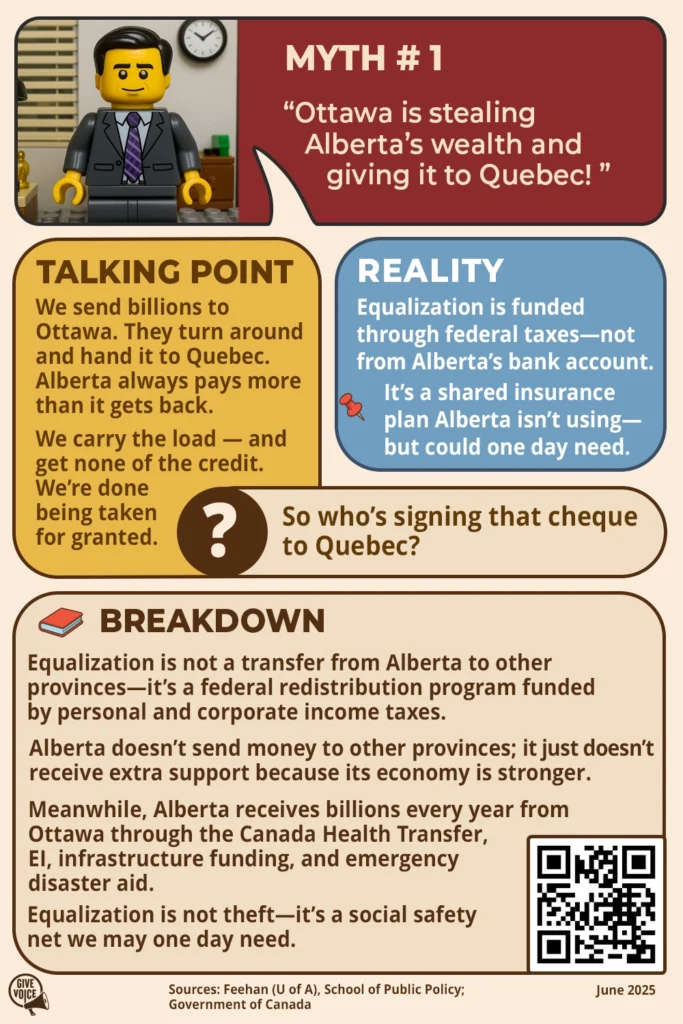
Myth #1:
No, Alberta doesn’t send cheques to Quebec. Equalization is about need, not geography. Alberta gets billions from Ottawa every year — and might need equalization itself someday. 👉 Download this image (JPG)
No, Alberta doesn’t send cheques to Quebec. Equalization is about need, not geography. Alberta gets billions from Ottawa every year — and might need equalization itself someday. 👉 Download this image (JPG)
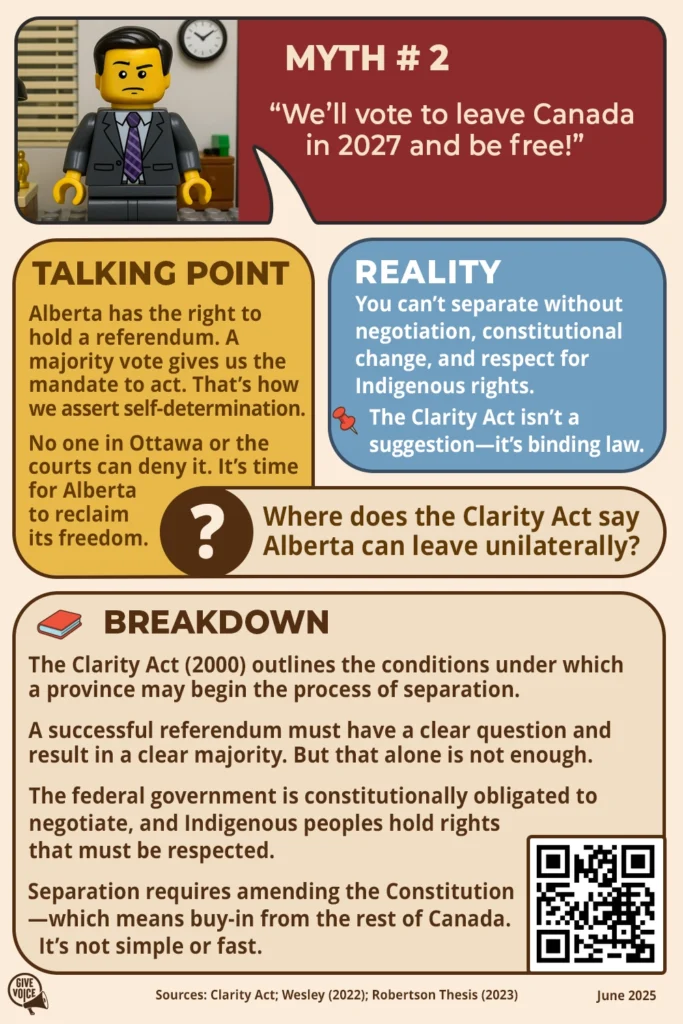
Myth #2:
A referendum is not a magic exit button. Separation takes negotiation, constitutional change, and respect for Indigenous rights. The Clarity Act makes that clear. 👉 Download this image (JPG)
A referendum is not a magic exit button. Separation takes negotiation, constitutional change, and respect for Indigenous rights. The Clarity Act makes that clear. 👉 Download this image (JPG)
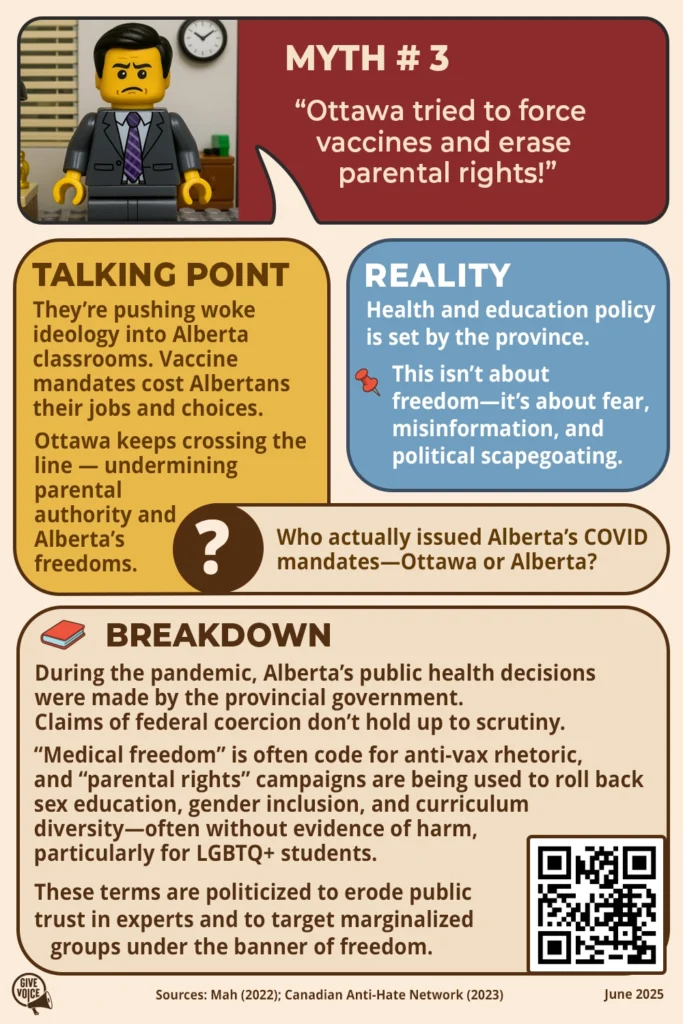
Myth #3:
Ottawa didn’t mandate vaccines or rewrite school policy. Those were Alberta’s decisions. Don’t let scapegoating distract from who actually made the rules. 👉 Download this image (JPG)
Ottawa didn’t mandate vaccines or rewrite school policy. Those were Alberta’s decisions. Don’t let scapegoating distract from who actually made the rules. 👉 Download this image (JPG)
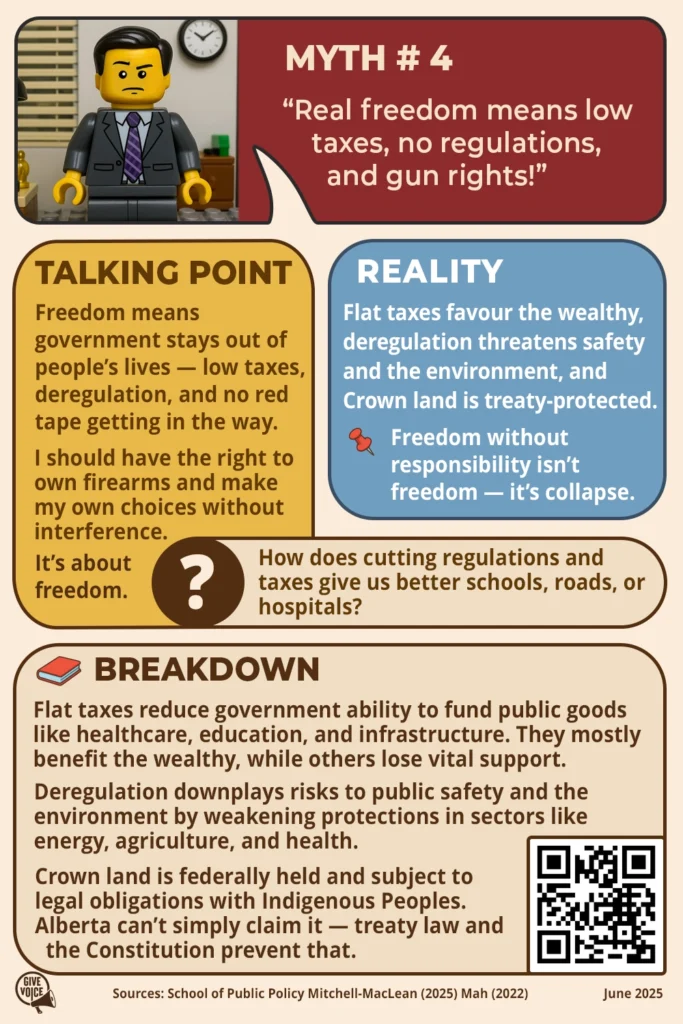
Myth #4:
Freedom means more than low taxes. It means strong public services, safety protections, and respecting treaties — not deregulation at any cost. 👉 Download this image (JPG)
Freedom means more than low taxes. It means strong public services, safety protections, and respecting treaties — not deregulation at any cost. 👉 Download this image (JPG)
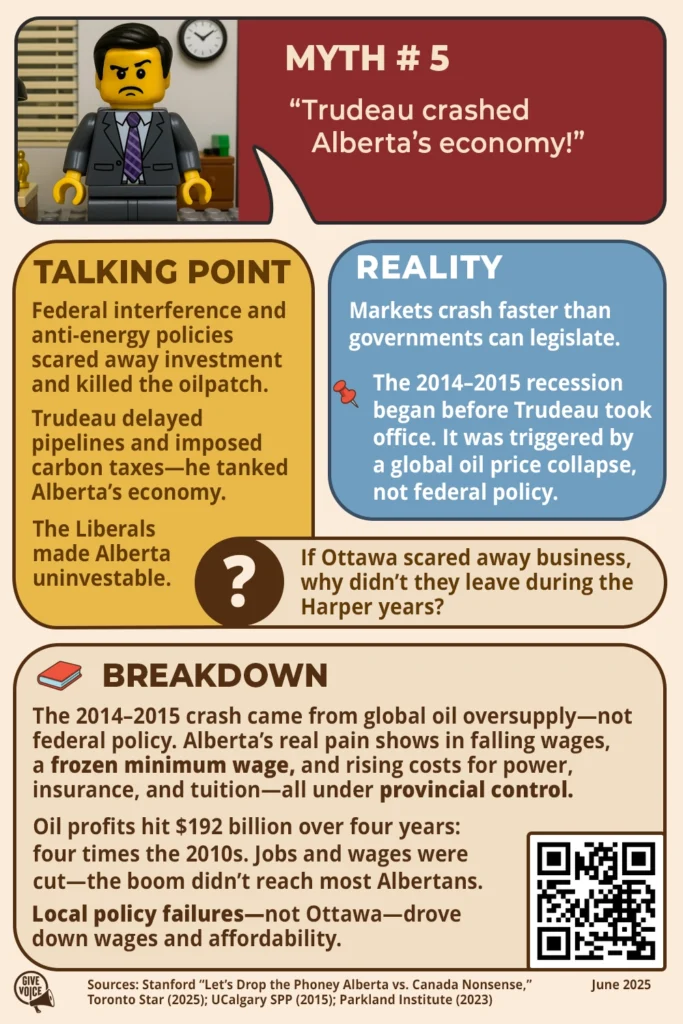
Myth #5:
Trudeau wasn’t even in office when oil prices crashed. The real affordability crisis was made in Alberta — and it’s still hurting workers and families today. 👉 Download this image (JPG)
Trudeau wasn’t even in office when oil prices crashed. The real affordability crisis was made in Alberta — and it’s still hurting workers and families today. 👉 Download this image (JPG)
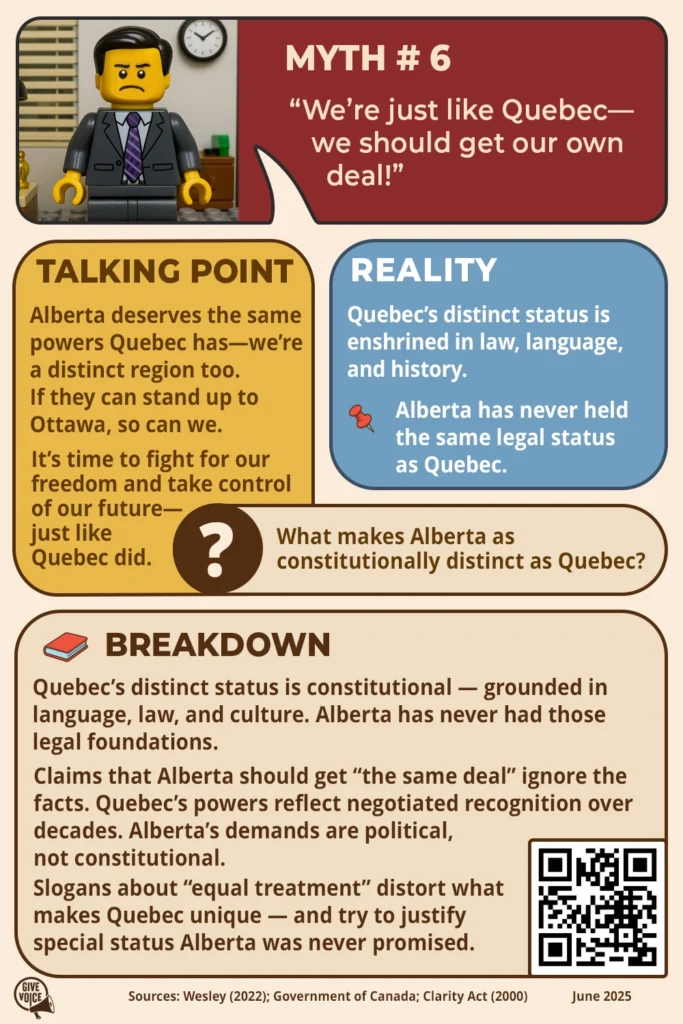
Myth #6:
Alberta and Quebec are not the same. Quebec’s powers come from its language, legal system, and culture. Alberta’s demands are political, not constitutional. 👉 Download this image (JPG)
Alberta and Quebec are not the same. Quebec’s powers come from its language, legal system, and culture. Alberta’s demands are political, not constitutional. 👉 Download this image (JPG)
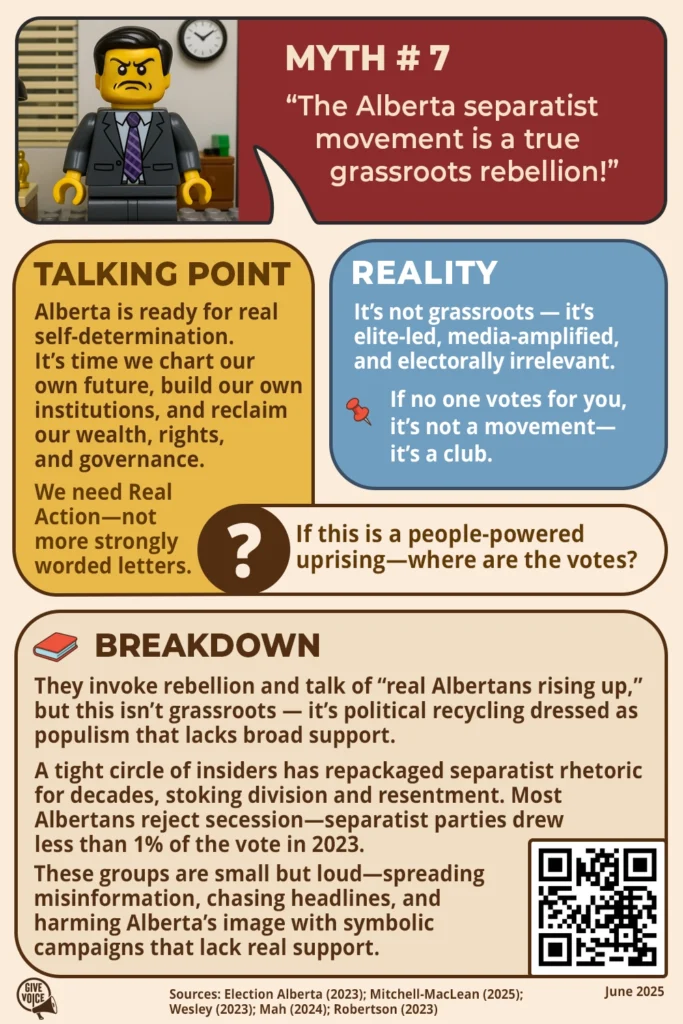
Myth #7:
If this movement is so popular, where are the votes? Separatist parties drew less than 1% in 2023. This isn’t grassroots — it’s grievance marketing. 👉 Download this image (JPG)
If this movement is so popular, where are the votes? Separatist parties drew less than 1% in 2023. This isn’t grassroots — it’s grievance marketing. 👉 Download this image (JPG)
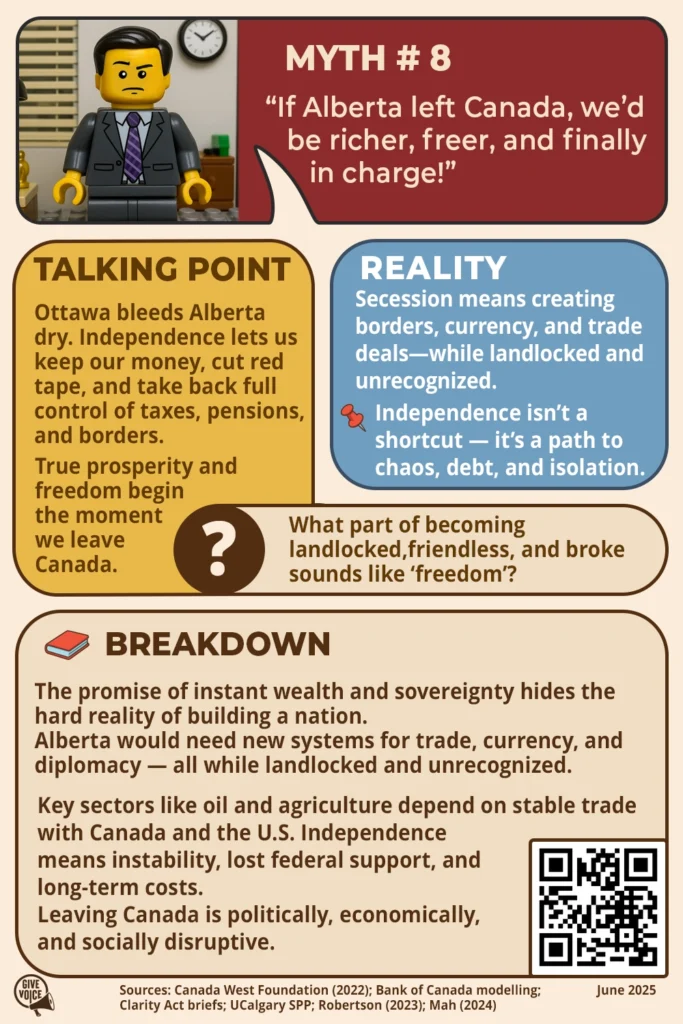
Myth #8:
Independence isn’t a shortcut to prosperity. It’s a leap into legal, economic, and logistical chaos — especially for a landlocked province like Alberta. 👉 Download this image (JPG)
Independence isn’t a shortcut to prosperity. It’s a leap into legal, economic, and logistical chaos — especially for a landlocked province like Alberta. 👉 Download this image (JPG)
